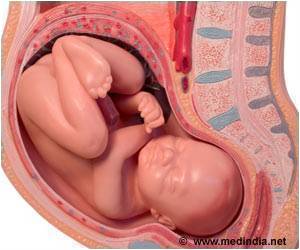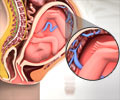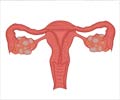- Placentophagy among women has become increasingly prevalent in the past decade, to promote health and healing during the postpartum period.
- Many breast-feeding mothers prefer a non-pharmacological approach for the management of postpartum depression, to prevent the side-effects associated with the medication on infants.
- New study assesses the familiarity and attitude of patients and providers, towards placentophagy and identifies the perceived benefits and/or risks associated with the practice.
Placentophagy
Placentophagy refers to the maternal consumption of the placenta after birth. The placenta can be consumed raw, cooked, or in an encapsulated form.During pregnancy, it acts as a channel for nourishing the baby by providing oxygen and nutrients and filtering out potentially harmful substances.
Placenta is a major source of steroid and peptide hormones that are critical to the maintenance of pregnancy, timing of birth, and fetal development.
Many mammalian species consume the raw placenta immediately after delivery.
Experiments in rats have shown that opioid effect from placental consumption enhances endogenous pain relief. But in humans, there is limited evidence available to support the benefits and/or risks of placentophagy.
Some of the common self-reported benefits of placentophagy are improved energy, mood, and lactation.
The concentrations of iron were high, and potentially toxic elements, such as arsenic and lead, were below recommended toxicity levels.
But it remains unclear whether the concentrations of these elements are enough to achieve a therapeutic benefit or an adverse effect.
The proposed benefits of placentophagy include:
- Hormonal balancing
- Pain moderation
- Nutritional advantages (such as iron supplementation)
- Increased lactation
- Improved energy
- Prevention of postpartum depression
Considering Placentophagy for Postpartum Depression
Women face multiple problems during the postpartum period because of hormonal fluctuations, added responsibility, and increased stress.Postpartum depression (PPD) is a common problem that up to one in five women experience.
Due to the untoward effects of anti-depressants on infants, health care providers are often hesitant to prescribe medication to breast-feeding women.
Both pregnant and postpartum women are more likely to prefer non-pharmacologic treatment methods for depression relapse/prevention and for them, consuming the placenta may appeal as a more natural remedy to address potential depressive symptoms postpartum.
To promote health and healing during the postpartum period, the practice of maternal human placentophagy has become increasingly prevalent in the past decade among women.
But the extent of knowledge of clinicians or patients about the potential positive and negative health effects associated with this practice is still not clear.
Study
The research team conducted two cross-sectional surveys to assess the familiarity with, and attitude towards placentophagy among patients and providers.The health care provider survey was distributed via email listservers to international perinatal professional organizations and obstetrics and gynecology, nurse midwifery, family medicine, and psychiatry departments at three urban hospitals.
Female patients who were 18 years or older were recruited between June 2014 and January 2015 from Prentice Women's Hospital and the Asher Center for the Study and Treatment of Depressive Disorders, a clinic at Northwestern Hospital specializing in women's perinatal mental health.
The patient survey consisted of 36 multiple-choice format questions and several free response items. The survey was divided into five key sections:
- Demographic information
- Knowledge of placentophagy
- Attitudes toward placentophagy compared with traditional medical treatments including willingness to try placentophagy
- Personal use of placentophagy
- Personal mental health history, as measured by patients’ self-reported responses to survey items
Results
The research team including Stephanie Schuette and coauthors from Northwestern University Feinberg School of Medicine (Chicago, IL), Brigham and Women's Hospital (Chestnut Hill, MA), and University of Colorado School of Medicine (Denver, CO) report that though the awareness of placentophagy among most providers and patients did exist, they are unsure of its benefits or risks.Women who reported having a history of a mental health complications showed more willingness to consider placentophagy, instead of pharmacological approach.
Sociodemographic factors also played a role in deciding the patients’ familiarity with and attitudes toward placentophagy. Participants with higher household income and a higher level of education showed a greater willingness to try placentophagy.
Though many health care providers did not express much inclination towards the practice, several were in favor of future research that could shed light on the potential benefits and/or risks of placentophagy in humans.
"The results were intriguing for the remarkable differences in perceptions based on multiple factors, such as provider types, income and education levels of patients, and geographic location," says The Journal of Alternative and Complementary Medicine Editor-in-Chief John Weeks, Seattle, WA.
First author Stephanie Schuette, Northwestern University Feinberg School of Medicine, states "As women are becoming increasingly aware of placentophagy, it is important for future research to examine the safety and efficacy of consuming placenta pills/tissue for postpartum benefits."
They added that further studies are needed to examine the potential therapeutic efficacy and/or risks of placentophagy.
Reference:
- Stephanie Schuette et al. Perspectives from Patients and Healthcare Providers on the Practice of Maternal Placentophagy. The Journal of Alternative and Complementary Medicine ; (2017) doi:10.1089/acm.2016.0147.














